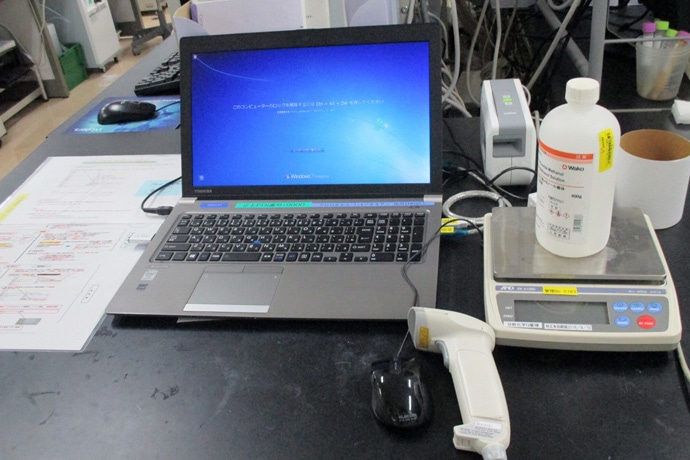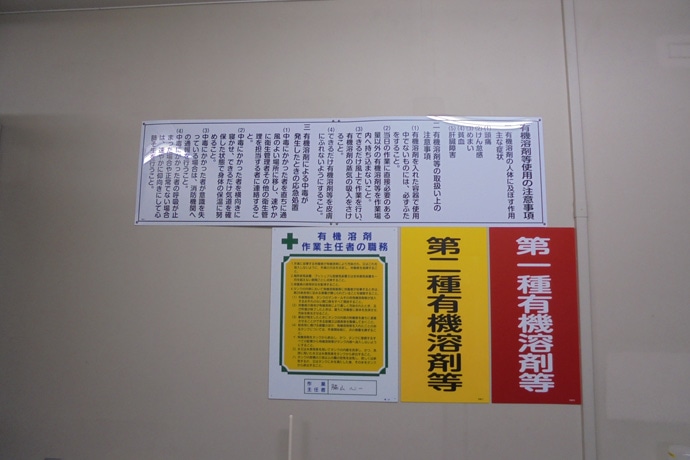We comply with environmental laws and regulations as well as voluntary industry standards, and strive to prevent pollution and control emissions of substances that have a negative impact on the environment. We work in partnerships to solve environmental problems by aligning ourselves with international agreements and government and local government policies.
Report of Efforts
Creating a system for compliance with environmental laws and regulations
Once a year, responsible personnel at the respective business offices conduct the following as stipulated in laws and regulations:
- Confirmation of legal compliance evaluations
- Entry of evaluation status
- Approval of the supervisor
- Reporting to the SDGs Promotion Division/Legal Affairs Division
- Reporting to the Group Risk and Compliance Committee
- Reporting to the FANCL Management Strategy Conference
Environmental laws and regulations are being strengthened year by year, and we are striving to share information internally and strengthen our management system. Based on the results of a survey conducted in fiscal 2024, there were no major violations (fines / sanctions) of laws and regulations related to the environment.
Going forward, we will continue to ensure appropriate management.
Thorough Waste Management
FANCL promotes centralized management through the digitization of contracts, licenses, and vendor information and electronic manifests. Since fiscal 2015, the FANCL Group has adopted the electronic manifest system at all business offices.
We visit the processing facilities of waste treatment vendors to confirm the state of compliance with laws and regulations, execution of the contract, and status of licenses.
As the importance of on-site confirmation has increased with the revision of the Waste Disposal Law, we will continue to periodically conduct on-site confirmation of waste treatment facilities.
In addition, we also confirm whether the vendor has been accredited under the newly created Excellent Industrial Waste Disposal Vendor Accreditation System, promoting the acquisition of this accreditation.
Management of Chemical Substances
The revised Industrial Safety and Health Law, which came into effect in June 2017, introduced risk assessment of chemical substances, as risk assessment of chemical substances on workers became mandatory. The risk of health hazards to workers due to the type and amount of chemical substances used and the work environment is clarified, and if the risk is high, measures such as ventilation and wearing masks are taken. At the same time, thorough measures should be taken in the event of an earthquake (minimizing the amount of chemical substances stored and used, preventing them from falling and tipping over, and using GHS labeling of chemical substances for prompt firefighting). In addition, we promote the shift of chemical substances to alternative reagents with lower risks (abolishing the use of benzene and hexavalent chromium, maintaining records of their use, and conducting continuous monitoring).
The FANCL Research Institute, which handles poisonous and deleterious substances and chemical substances, has introduced a Chemical Management System. With this system, the incoming reagents, users, usage volume, and storage status can be grasped simply by matching the ID of the person in charge at the time of receiving and using the reagents and measuring the reagent weight, thereby eliminating record transcription errors and falsification. In addition, by utilizing the data accumulated in the database, such as usage history, it is possible to check inventory, and ascertain the number and multiplicity of possession of hazardous materials and poisonous and deleterious substances at any time. The same function has been added to respond to revisions in laws such as the Ordinance on Prevention of Hazards due to Specified Chemical Substances (work purpose and time records) to improve efficiency.
FANCL Group is aiming to further enhance its safety management system by centrally managing chemical substances (chemicals) from entry to disposal.


Enhancement of CFC Leakage Measures
FANCL has created a list of devices that use CFC, creating a system for keeping and saving records regarding the maintenance of appropriate use environments, conducting regular inspections, and handling CFC leaks / inspection and maintenance of devices.
Prevention and Measures to Address Soil and Groundwater Contamination
At our plants and research facilities, we work to strictly manage the prevention of soil and groundwater contamination caused by leaks of wastes and liquid waste containing chemical substances.
Proper management and disposal of specified hazardous industrial wastes, and hazardous wastes specified in the Basel Convention (which regulates the import and export of hazardous wastes to and from overseas) is mandatory, and requires particularly strict management.
These hazardous wastes and effluents are recorded, stored, transferred, and disposed of on a regular basis, and subjected to necessary investigations and inspections in accordance with the established methods, in compliance with the Soil Contamination Countermeasures Law, Waste Disposal and Public Cleansing Law, Waste Disposal and Public Cleansing Law, Air Pollution Control Law, Water Pollution Control Law, and other laws and regulations governing waste, wastewater, exhaust gas, etc. discharged from corporate activities, as well as relevant local government ordinances.
Noise, Vibration, and Odor Prevention
Appropriate measures and continuous monitoring are implemented to ensure compliance with laws and regulations concerning noise, vibration, and odor prevention.
